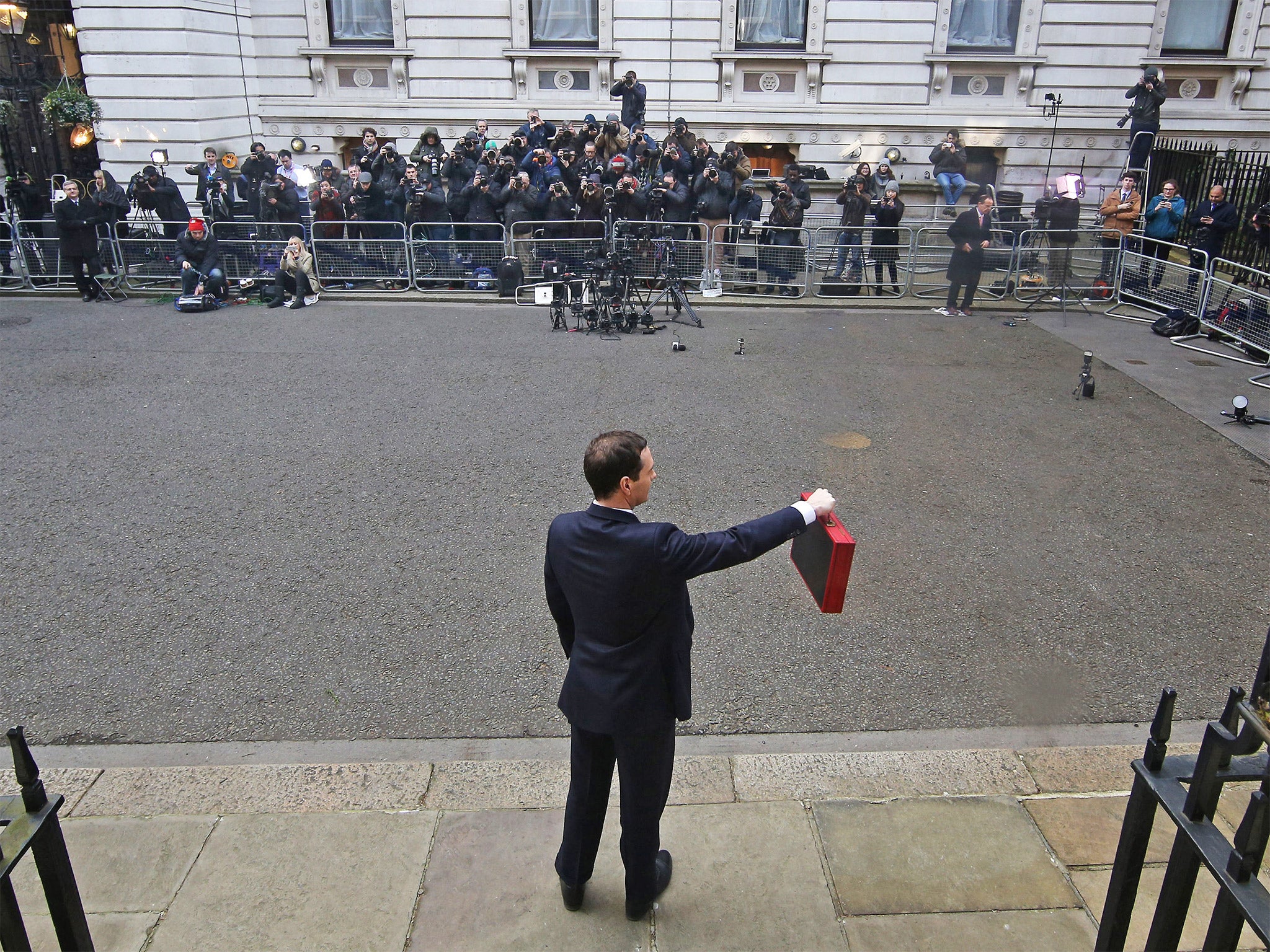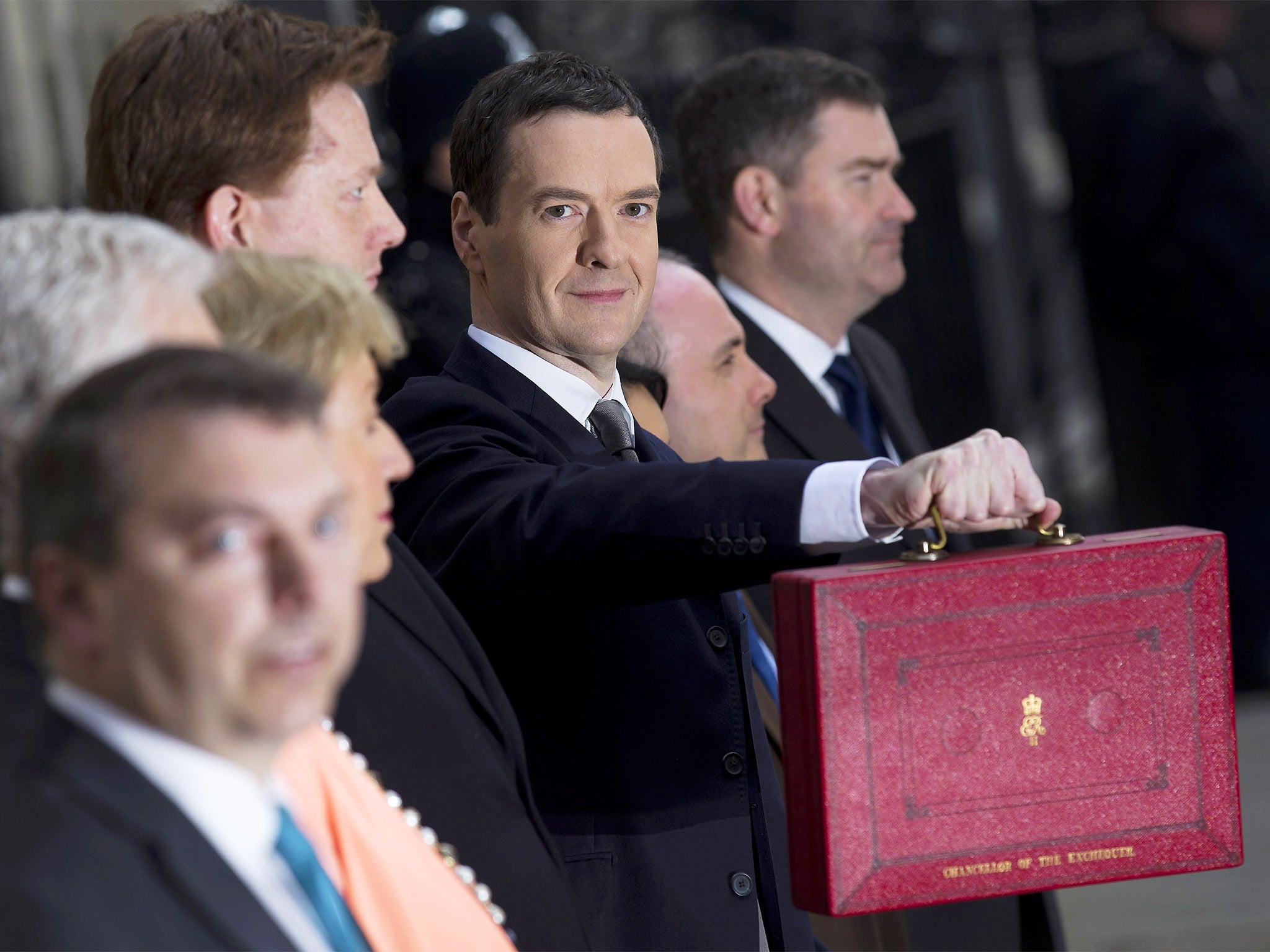Budget 2015: Tories look like they won economic argument, but 'nasty party' image remains
Inside Westminster

George Osborne won the traditional rapturous reception when he addressed Conservative MPs after delivering his Budget on Wednesday. Some younger MPs in marginal seats were slightly disappointed he had not launched a “firecracker” policy. But older Tory heads were not expecting a game-changer. They guessed correctly that the Chancellor would reinforce their party’s relentless message on the economy. “It’s another stake in the ground,” said one senior Tory MP.
Mr Osborne enjoyed the plaudits, but not everything went according to plan. Under pressure from David Cameron and Lynton Crosby, the Tories’ no-nonsense Australian strategist, the Chancellor made a highly significant change to his spending plans. Only three months ago, Mr Osborne told us it was vital for the country to have a £23bn surplus in 2019-20. This week, he suddenly cut it to a mere £7bn so he could spend more on public services. Why? Because the Office for Budget Responsibility (OBR), the fiscal watchdog he set up, said in December that his plans would take the level of public spending back to the 1930s depression era. It was a bit misleading --the economy is six times bigger now -- but politically toxic. Ed Miliband described it as “an election-losing moment” for the Tories. The funny thing is that Mr Cameron and Mr Crosby privately agreed, and twisted Mr Osborne’s arm into rewriting his Budget figures. He announced that public spending as a share of GDP would now fall to the level under New Labour in 2000.
However, the OBR had another unwanted surprise for the Chancellor. Robert Chote, its fiercely independent chairman, described the revised spending plans as a “rollercoaster” ride. The “down” part would be two years of deeper cuts in 2016-18 than we have seen yet, followed by a big “up” in 2019-20 -- the biggest spending rise for a decade.
It was not the metaphor Mr Osborne was hoping for. He killed off Mr Chote’s damaging parallel with the 1930s, only for the OBR to replace it with a scary “rollercoaster” ride. Not helpful when your election dividing lines are about competence and stability from the Tories against the chaos and risk under Labour. To his credit, Mr Chote appears to be saying: if the Chancellor is going to play games with his figures, then the OBR will tell the public and Parliament what it means in plain language. This watchdog can bite.
There are genuine doubts whether Mr Osborne would really impose such deep cuts if the Tories retain power --just as he halved rather than cleared the deficit in the current parliament, as he promised to do in 2010. The Tories might raise taxes but they don’t want to talk about that before the election so they can attack Labour’s proposed tax increases. If the Tories form another coalition with the Liberal Democrats, they could blame a tax hike on them.
Yet Mr Osborne exudes the confidence of a man who has won the economic argument. Labour banged on about his cuts being “too far, too fast” for too long. It should have realised that growth would return. Labour’s election slogan is “a better plan”—a back-handed compliment to the Tories’ endlessly repeated “long-term economic plan”.
A crucial question is whether the economic and political cycles have aligned. Mr Osborne hopes so. He seized on forecasts that incomes will finally start to rise this year, which potentially blows a hole in a Labour strategy resting on the “cost of living crisis.”
The Chancellor’s problem is that no politician can magic up a “feelgood factor” if people don’t feel good – and they don’t yet. Whatever the conflicting figures on incomes show, the election probably comes a year too early for the Tories. Their nightmare of a “voteless recovery” continues. For months, Tory MPs have been praying that the improving economy would produce a spurt of four or five points in the opinion polls to take their party clear of Labour. It hasn’t happened and now time is running out. Neck and neck on May 7 is no good for the Tories; the electoral map would deliver Labour more seats.

This weekend’s polls will be anxiously awaited by the Tories. Some Tory modernisers doubt the wisdom putting all their eggs in the basket of economic competence –the Crosby strategy. Indeed, the Budget played to the Tories’ strengths on the economy without addressing their weaknesses – that some voters see them as a “nasty party” which looks after its rich friends, and believe the recovery is not helping “people like me.”
Perhaps the Budget should have revived Mr Cameron’s “compassionate Conservatism” by raising the threshold for national insurance contributions (which would help low earners much more than increasing the personal tax allowance) and addressing the NHS and housebuilding. If the Tories lose power, it will not be because of the economy. It will be because they failed to reassure voters about their motives – the very reason they did not win in 2010.
The absence of a “feelgood factor” does not mean the Tories will lose in May. There is another side to the coin. If people who lack enthusiasm for the Tories are not convinced they would do any better under Labour, then Mr Miliband’s party could lose the election. Both main parties have a lot of reassuring and convincing to do over the next seven weeks.
Join our commenting forum
Join thought-provoking conversations, follow other Independent readers and see their replies
0Comments